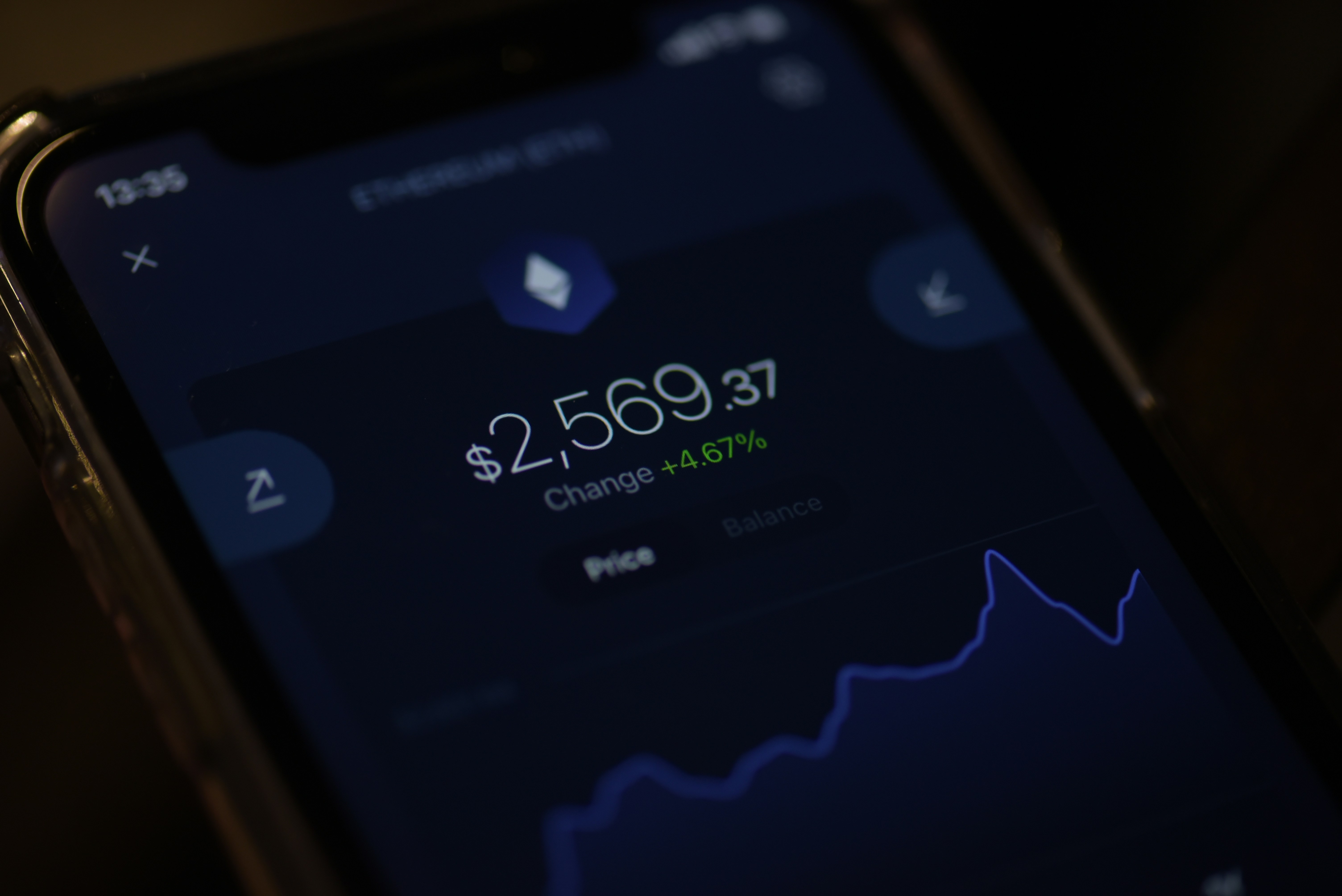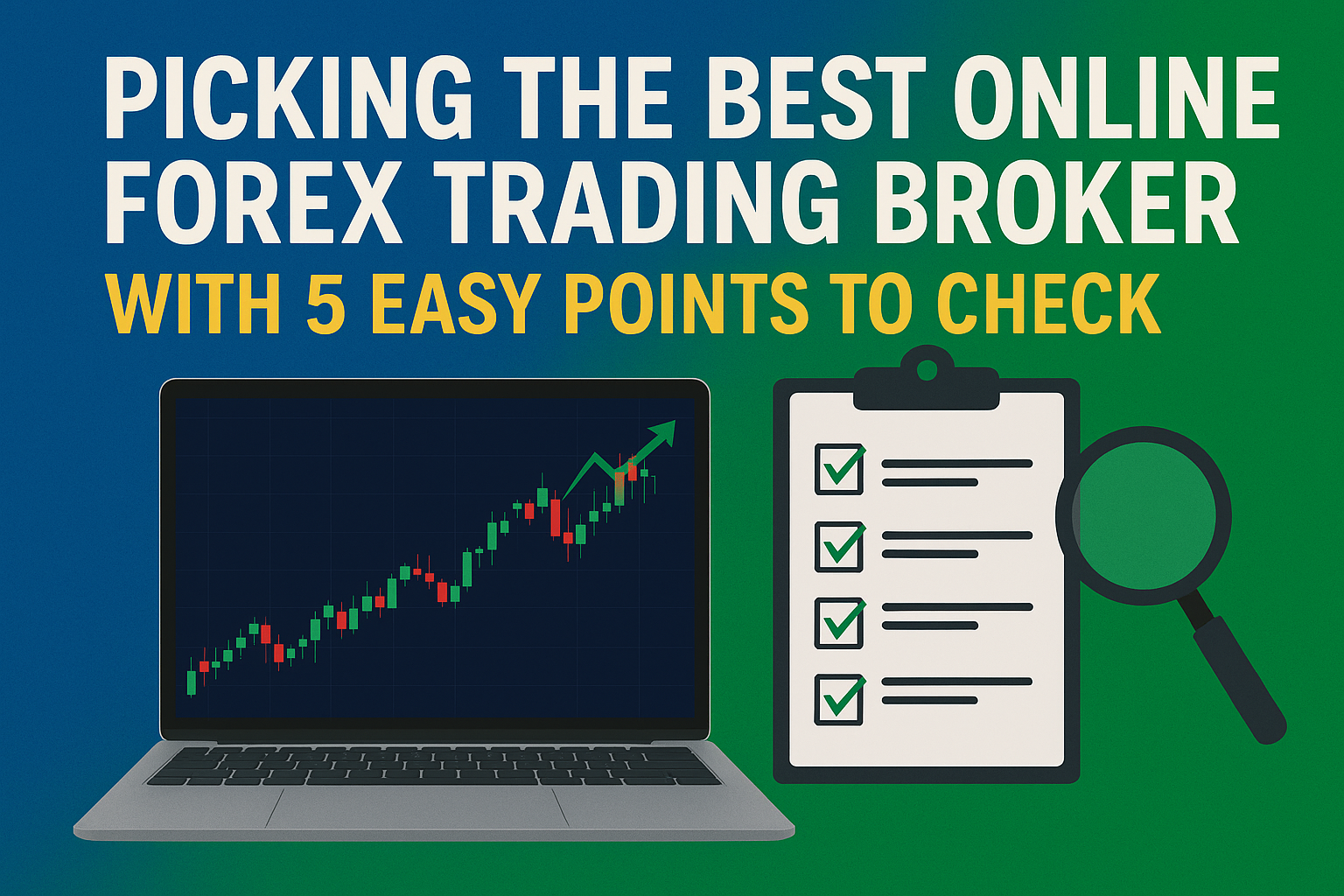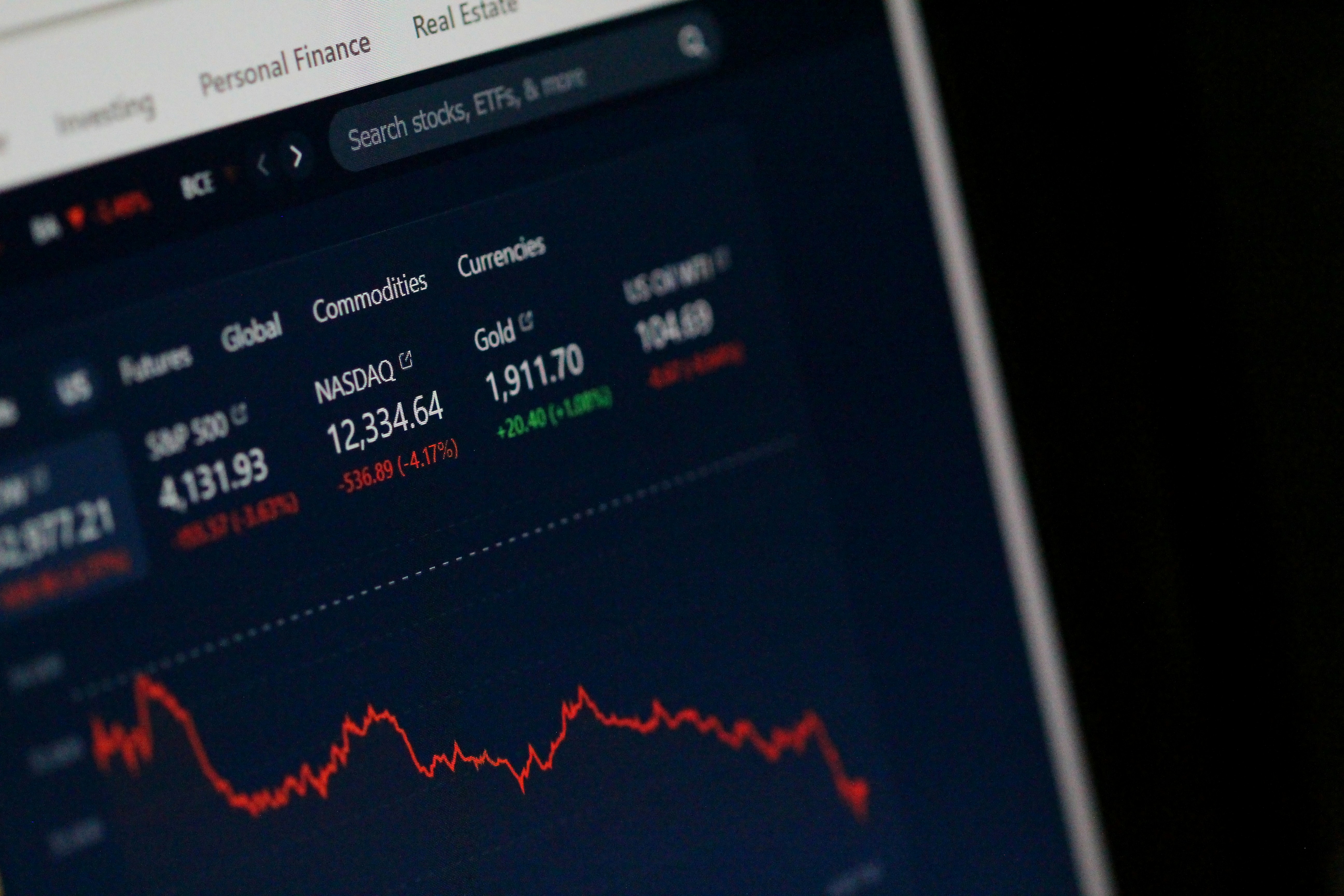What Characterizes a Crypto Broker? Understanding the Essentials for Successful Trading
November 3, 2024 | by bestcrypto
 Photo by Brian J. Tromp on Unsplash
Photo by Brian J. Tromp on Unsplash In recent years, the world of cryptocurrency has exploded in popularity, drawing the attention of both novice and experienced investors. With this surge in interest, many people are looking to get involved in crypto trading. However, a fundamental question often arises: What characterizes a crypto broker? Understanding the features and qualities of a crypto broker is crucial for anyone looking to enter this exciting market.
This article will explore the essential characteristics that define a crypto broker, helping you navigate the often confusing world of cryptocurrency trading. Whether you are a beginner or a seasoned trader, knowing what to look for in a crypto broker can enhance your trading experience and success.
1. What is a Crypto Broker?
Before diving into the specifics of what characterizes a crypto broker, it’s important to understand what a crypto broker actually is. A crypto broker acts as an intermediary between buyers and sellers of cryptocurrencies. They facilitate trades, provide trading platforms, and often offer additional services like market analysis, educational resources, and customer support.
Crypto brokers can operate in various forms, including:
- Centralized Exchanges: These are platforms that manage and facilitate trading for users. Examples include Coinbase and Binance.
- Decentralized Exchanges (DEX): These allow users to trade directly with each other without an intermediary. Examples include Uniswap and SushiSwap.
- Brokerage Firms: Some companies operate as brokers, allowing users to buy cryptocurrencies without needing to manage their own wallets. Examples include eToro and Robinhood.
Understanding the role of a crypto broker is essential to appreciating what characterizes a crypto broker. Now, let’s explore the key features that set good crypto brokers apart from the rest.
2. Security Features
What characterizes a crypto broker? One of the most critical aspects is security. Given the rise in cybercrime and scams within the cryptocurrency space, robust security features are non-negotiable for any reputable broker. Here are some key security measures to look for:
- Two-Factor Authentication (2FA): This adds an extra layer of security by requiring a second form of identification when logging in or making transactions.
- Cold Storage: Reputable brokers store a majority of user funds in cold storage, which is offline and less susceptible to hacks.
- Insurance: Some brokers offer insurance on user funds in case of theft or breaches, providing an extra layer of protection.
- Regulatory Compliance: Good brokers adhere to local and international regulations, which often include strict security protocols to protect users.
When choosing a crypto broker, always ensure they prioritize security. This will give you peace of mind when trading and storing your assets.
3. User-Friendly Interface
Another significant characteristic of a crypto broker is the user interface. A well-designed platform can make or break your trading experience. Here’s what to look for:
- Intuitive Design: The platform should be easy to navigate, even for beginners. Clear menus, simple layouts, and accessible features are vital.
- Mobile Compatibility: A good crypto broker will offer a mobile app or a mobile-friendly website, allowing users to trade on the go.
- Customizable Dashboard: Features that allow users to customize their trading dashboard can enhance the user experience, helping traders to access their most-used features quickly.
A user-friendly interface ensures that you can focus on trading without getting bogged down by complicated navigation or design issues.
4. Variety of Cryptocurrencies Offered
What characterizes a crypto broker? The range of cryptocurrencies available for trading is another essential factor. A good broker should offer a diverse selection of cryptocurrencies to meet the needs of different traders. Here’s why this matters:
- Access to Emerging Cryptocurrencies: A broad selection allows you to invest in up-and-coming coins that may not be available on every platform.
- Portfolio Diversification: By having access to various cryptocurrencies, you can diversify your investments and reduce risk.
- Market Opportunities: More cryptocurrencies mean more trading opportunities. Being able to buy and sell different coins can lead to better returns.
When evaluating a crypto broker, check the list of available cryptocurrencies. The more options, the better your chances of finding lucrative opportunities.
5. Fees and Commissions
Understanding fees and commissions is crucial when assessing a crypto broker. What characterizes a crypto broker? The fee structure can greatly impact your profitability. Here are some common fees to look out for:
- Trading Fees: Most brokers charge a fee for executing trades. This can be a flat fee or a percentage of the transaction.
- Withdrawal Fees: Some brokers charge for withdrawing funds from the platform. Be sure to check these fees, as they can add up over time.
- Deposit Fees: While many brokers don’t charge for deposits, some do. Make sure you understand any fees associated with funding your account.
- Spread: This is the difference between the buying and selling price of a cryptocurrency. A larger spread means higher costs for traders.
Always compare the fee structures of different brokers to ensure you get the best deal possible. Low fees can significantly enhance your overall trading experience.
6. Trading Tools and Resources
A good crypto broker should provide users with various tools and resources to aid their trading journey. What characterizes a crypto broker? The availability of these tools can empower you to make informed decisions. Here are some essential features to look for:
- Charting Tools: Advanced charting features help you analyze price movements, trends, and market data.
- Technical Analysis Indicators: Tools that provide insights into market trends can help traders make better decisions.
- Market News and Analysis: Access to real-time news and analysis can keep you updated on market developments and trends.
- Educational Resources: Many brokers offer tutorials, webinars, and articles to help users improve their trading skills.
Access to these resources can enhance your understanding of the crypto market and improve your trading strategies.
7. Customer Support
What characterizes a crypto broker? Quality customer support is essential, especially for new traders who may have questions or face issues. Here’s what to consider:
- Availability: Check if customer support is available 24/7, especially if you plan to trade internationally.
- Support Channels: Look for brokers that offer multiple support channels, such as live chat, email, and phone support.
- Response Times: A good broker should respond to inquiries promptly, ensuring that your issues are resolved quickly.
Effective customer support can significantly enhance your trading experience, assisting when you need it most.
8. Reputation and Reviews
Before choosing a crypto broker, it’s wise to research their reputation. What characterizes a crypto broker? User reviews and experiences can provide valuable insights into a broker’s reliability and performance. Here’s how to assess a broker’s reputation:
- User Reviews: Check platforms like Trustpilot, Reddit, or specialized crypto forums for user feedback and experiences.
- Industry Reputation: Look for brokers that are well-regarded within the industry. Established brokers often have a track record of reliability.
- Regulatory Standing: Ensure the broker complies with relevant regulations and has not faced any major legal issues or penalties.
Taking the time to research a broker’s reputation can save you from potential pitfalls and ensure you choose a trustworthy platform.
9. Regulation and Compliance
Regulatory compliance is a critical aspect of what characterizes a crypto broker. Depending on where the broker operates, they may be subject to specific regulations designed to protect users. Here are some points to consider:
- Licensing: Check if the broker is licensed by a reputable financial authority. Licensed brokers are often held to higher standards of security and transparency.
- Compliance with KYC and AML Regulations: Good brokers will require users to undergo Know Your Customer (KYC) and Anti-Money Laundering (AML) checks. This helps prevent fraud and ensures a safer trading environment.
- Transparency: A reputable broker should be transparent about their operations, fees, and terms of service.
Choosing a regulated broker can provide an added layer of security and peace of mind, knowing that the platform adheres to industry standards.
10. Payment Methods
When assessing a crypto broker, it’s essential to consider the payment methods they offer. What characterizes a crypto broker? The flexibility in payment options can greatly enhance your trading experience. Here are some common payment methods to look for:
- Credit and Debit Cards: Many brokers accept credit and debit card payments, making it easy to fund your account.
- Bank Transfers: Traditional bank transfers are another common option, though they may take longer to process.
- Cryptocurrency Deposits: Some brokers allow users to deposit cryptocurrencies directly into their accounts.
- E-Wallets: Popular e-wallets like PayPal, Skrill, or Neteller are also increasingly accepted by brokers.
Having a variety of payment methods provides flexibility and convenience, allowing you to choose the best option for your needs.
11. Trading Options
What characterizes a crypto broker? The types of trading options they provide are also significant. Different brokers may offer various trading styles, catering to the needs of different traders. Here are some common trading options to consider:
- Spot Trading: This is the most common form of trading where users buy and sell cryptocurrencies at current market prices.
- Margin Trading: Some brokers allow users to trade with leverage, which can amplify both profits and losses.
- Futures and Options: Advanced traders may seek brokers that offer futures or options trading, allowing for more complex strategies.
- Automated Trading: Features like trading bots or algorithmic trading can help users execute trades based on predefined strategies.
Choosing a broker that offers trading options that match your strategy and comfort level is crucial for your success.
12. Community Engagement
A community-oriented broker can provide additional benefits to traders. What characterizes a crypto broker? A strong community can enhance your trading experience and provide valuable resources. Here’s how:
- Forums and Discussion Groups: Brokers with active forums or social media channels encourage users to share experiences and strategies.
- Educational Events: Some brokers host webinars, workshops, or trading competitions that foster community engagement and learning.
- Feedback Mechanisms: Brokers that actively seek and respond to user feedback often create a better trading environment.
Engaging with a community can enhance your learning and provide additional support as you navigate the complexities of crypto trading.
13. Advanced Features for Experienced Traders
While beginners may focus on basic features, experienced traders often look for more advanced functionalities. What characterizes a crypto broker? The availability of sophisticated tools can significantly impact trading success. Here are some advanced features to consider:
- API Access: For tech-savvy traders, brokers that provide API access allow for automated trading and integration with personal trading systems.
- Advanced Order Types: Look for brokers that offer various order types, such as limit orders, stop-loss orders, and conditional orders, which can help manage risk effectively.
- Portfolio Tracking Tools: Advanced brokers often provide tools for tracking and analyzing your portfolio performance over time.
By selecting a broker with advanced features, experienced traders can enhance their trading strategies and increase their chances of success.
14. Conclusion: What Characterizes a Crypto Broker?
In summary, understanding what characterizes a crypto broker? is essential for anyone looking to trade cryptocurrencies successfully. A good crypto broker should prioritize security, offer a user-friendly interface, provide a variety of cryptocurrencies, and have transparent fees. They should also offer valuable trading tools and resources, excellent customer support, and a solid reputation.
When choosing a crypto broker, consider your trading style and needs. Take the time to research different brokers, read user reviews, and ensure they comply with regulations. By doing so, you’ll be better equipped to find a broker that suits your requirements, enhancing your trading experience and potential for success in the exciting world of cryptocurrency.
RELATED POSTS
View all


